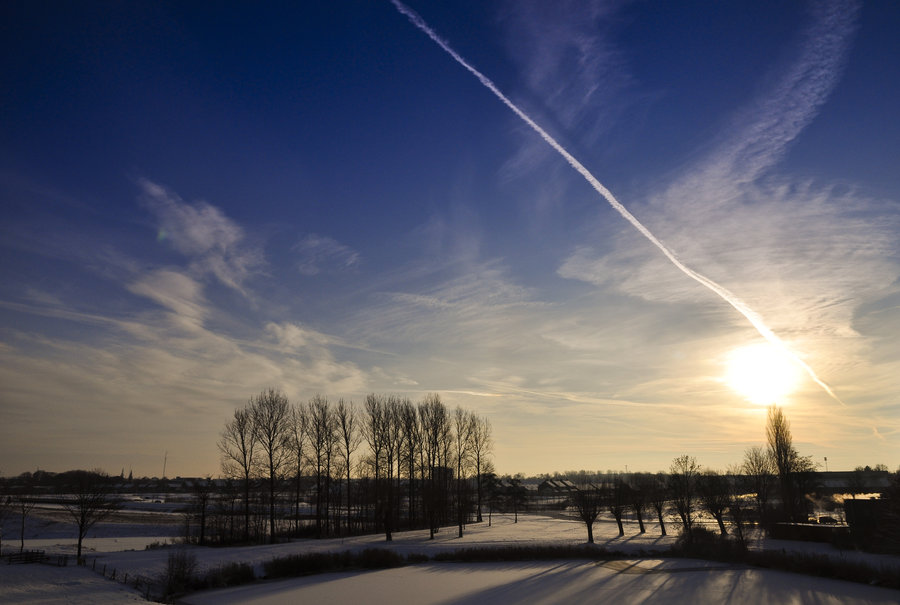Evaluating how human rhythms are affected by light, darkness, and the clock
05/03/2018 / By Jessica Dolores

We’d like to think that we have full control of our habits – when we wake up, sleep, work, and do other things. However, A new University of Seville study has just shown that we’re ruled by where we stand on Earth, and by the light-dark (LD) cycles that govern it.
José María Martín Olalla, a professor at the University of Seville, in a paper published in Scientific Reports, said his analysis of European laborers’ daily activities and sources of social synchronization showed that people tend to do things based on latitudinal patterns tied to the light/dark cycle. In other words, people ‘memorize’ the shortest photoperiod (daytime) of the year, and base their activities from there.
Olalla’s surveys of 17 European and two American countries also showed that winter sunrise (the later sunrise of the year, which increases with higher latitude) promotes human activity in the morning, like waking up, leaving home and starting one’s work. All these happen earlier with decreasing latitude. On the other hand, winter sunset (the year’s earliest sunset, which occurs earlier with increasing latitude) determines when laborers stop working, head for home, and have supper. Olalia revealed that winter sunset delays time by another hour from 54 to 40 degrees latitude.
The study also noted two other important points. Lunchtime activities are linked to meridional behavior (tied to noon) and to a latitudinal trend which affects timing of the winter sunset. People take their lunch earlier as latitude increases. On the other hand, people delay lunch as latitude decreases, since natural light doesn’t fade away that quickly at this point. The study also showed that at night, indoor activities like watching primetime television and bedtime are not tied to the winter sunset. They are based on meridional behavior or the winter sunrise.
Indirectly, the study looked at the role time zones and advancing time played in human activities. France, Belgium, and Spain advance their clocks an hour earlier than their physical time zones. This means people offset the advanced timing of the clock by delaying schedules and keeping up with the LD cycle. While this does not do any harm, it tends to make time comparisons vary from country to country, depending on the latitude involved. (Related: 4 Natural Tips to keep your body on track during Daylight Savings Time.)
Long distance travel affects your body rhythms
Changing time zones can be extra challenging for long-distance travelers whose body clock must adjust to changing sunrise and sunset patterns. They must deal with jet lag and the sleeplessness, irritability, and confusion that go with it.
Here are some tips for dealing with jet lag.
- Adjust your body clock – Slowly change your waking, sleeping, and eating habits at least four days before departure to match the schedule of people in your destination. Adopt the local time for your usual routine upon your arrival.
- Choose overnight flights – This way, you can have dinner at a normal time and be able to sleep on the plane. Depending on flight duration and the number of time zones you cross, you’ll most likely reach your destination in the morning or afternoon. This will best replicate your normal schedule and make it easier for you to adjust.
- Avoid overeating and coffee – Doing this 12 hours before, and during your flight will keep you from waking up frequently.
- Avoid or limit alcohol – Cabin air dehydrates, and changes in altitude can speed up the effects of alcohol (one drink in-flight is equal to two to three on the ground). Alcohol may dry you out and worsen jet lag.
- Try to sleep – Sleep relaxes and recharges your body, and you’ll need this, especially on long-haul flights. Consider saving up or using frequent-flyer miles to travel business class, where the seat reclines all the way to the back. If not, take the window seat and use enough pillows to prop yourself up against the wall.
- Go outdoors – Spending a lot of time under the sun will help reset your body’s natural rhythm to match that of your surroundings.
- Avoid sleeping early – Unless you reach your destination at night or close to your bedtime, don’t sleep as soon as you reach your hotel. You might stay wide awake at 3 a.m.
As they say, when in Rome, do as the Romans do. You’ll have to adjust your body clock. But you’ll meet new people and see new places along the way.
Read more articles about how nature affects both body and mind at MindBodyScience.news.
Sources include:
Tagged Under: body clock, circadian rhythm, jet lag, Latitude, light and dark, light-dark cycles, natural rhythms, sleep cycles, sunrise and sunset, sunrise patterns, sunset patterns, Travel Tips
RECENT NEWS & ARTICLES
COPYRIGHT © 2017 BRAIN NEWS


















